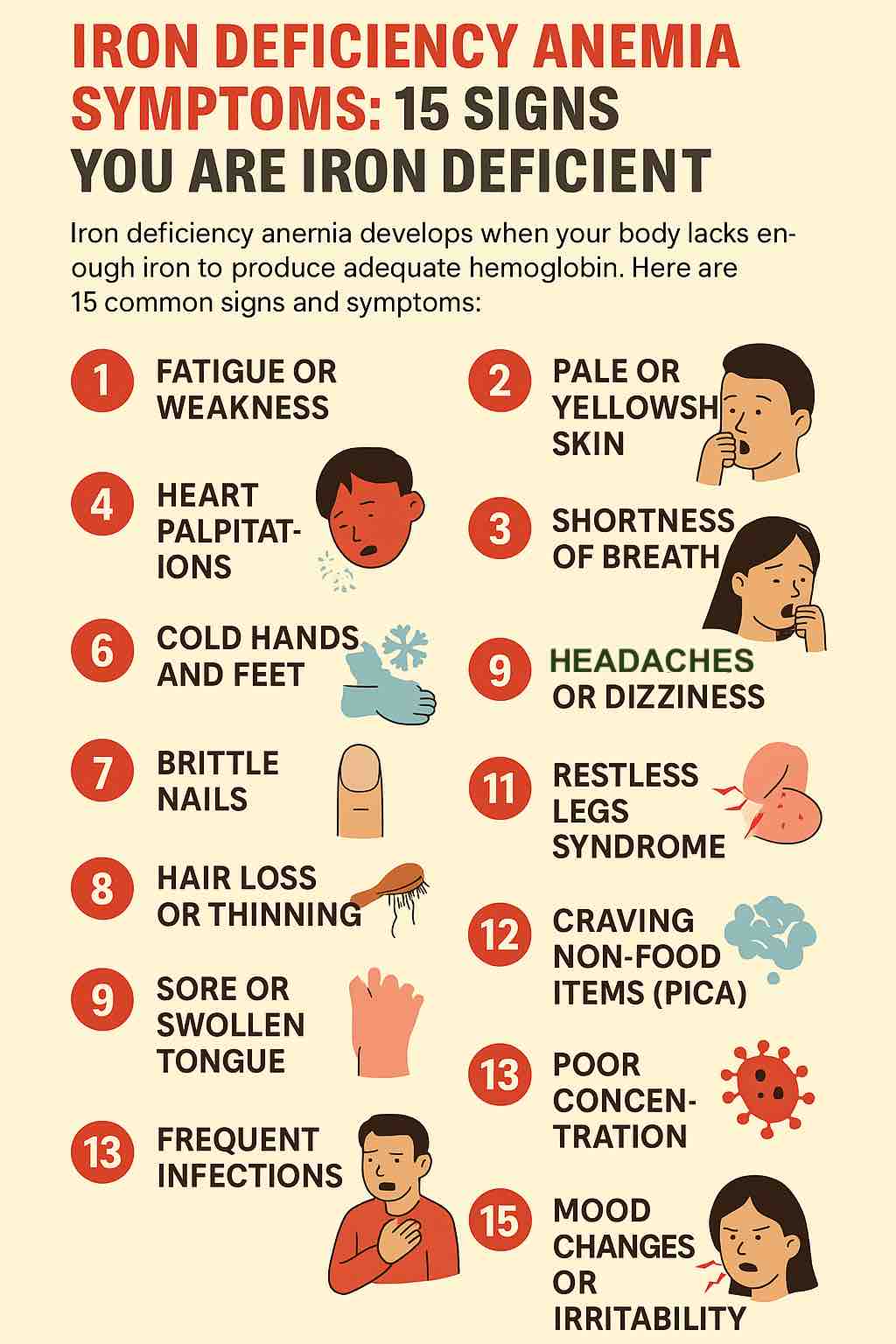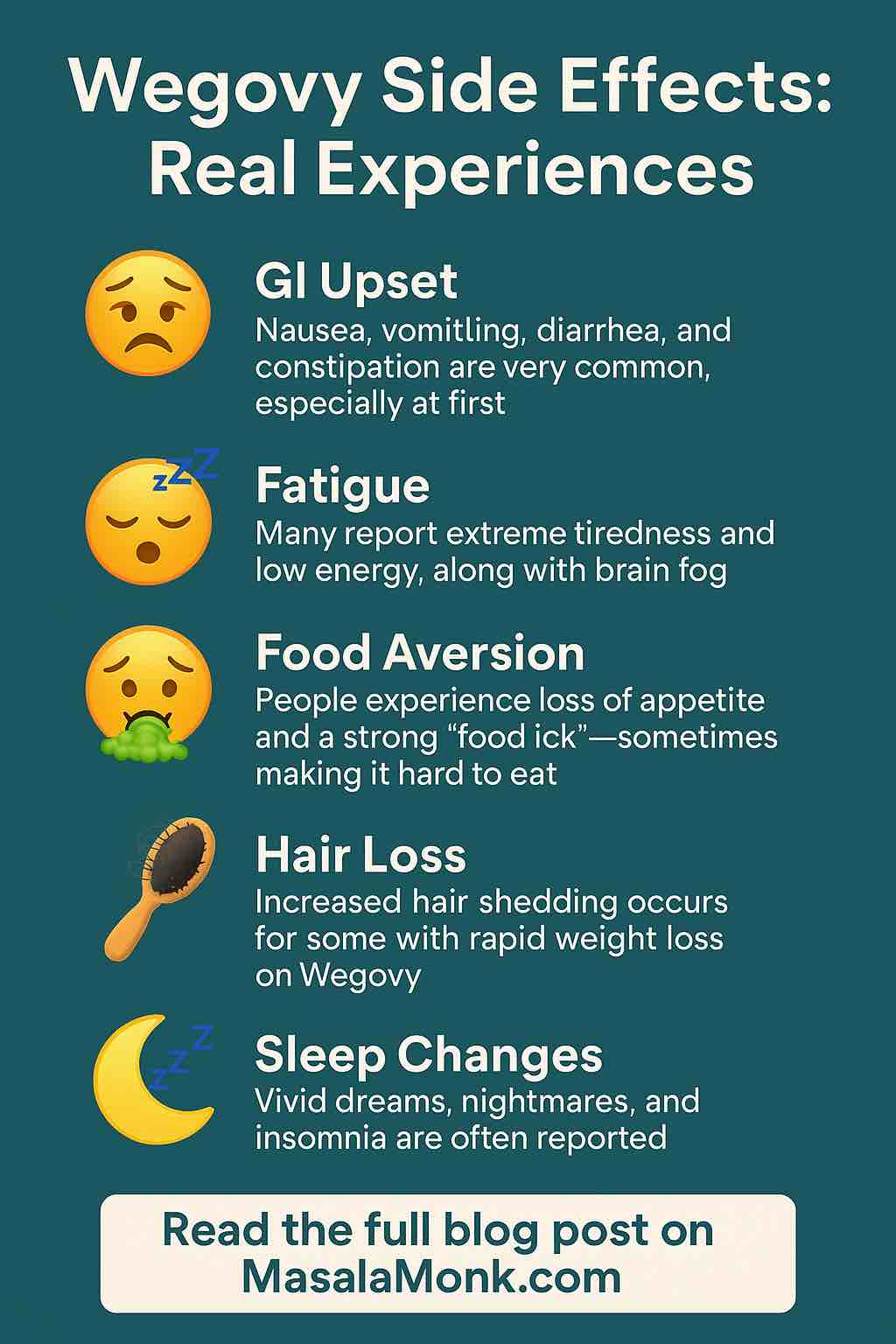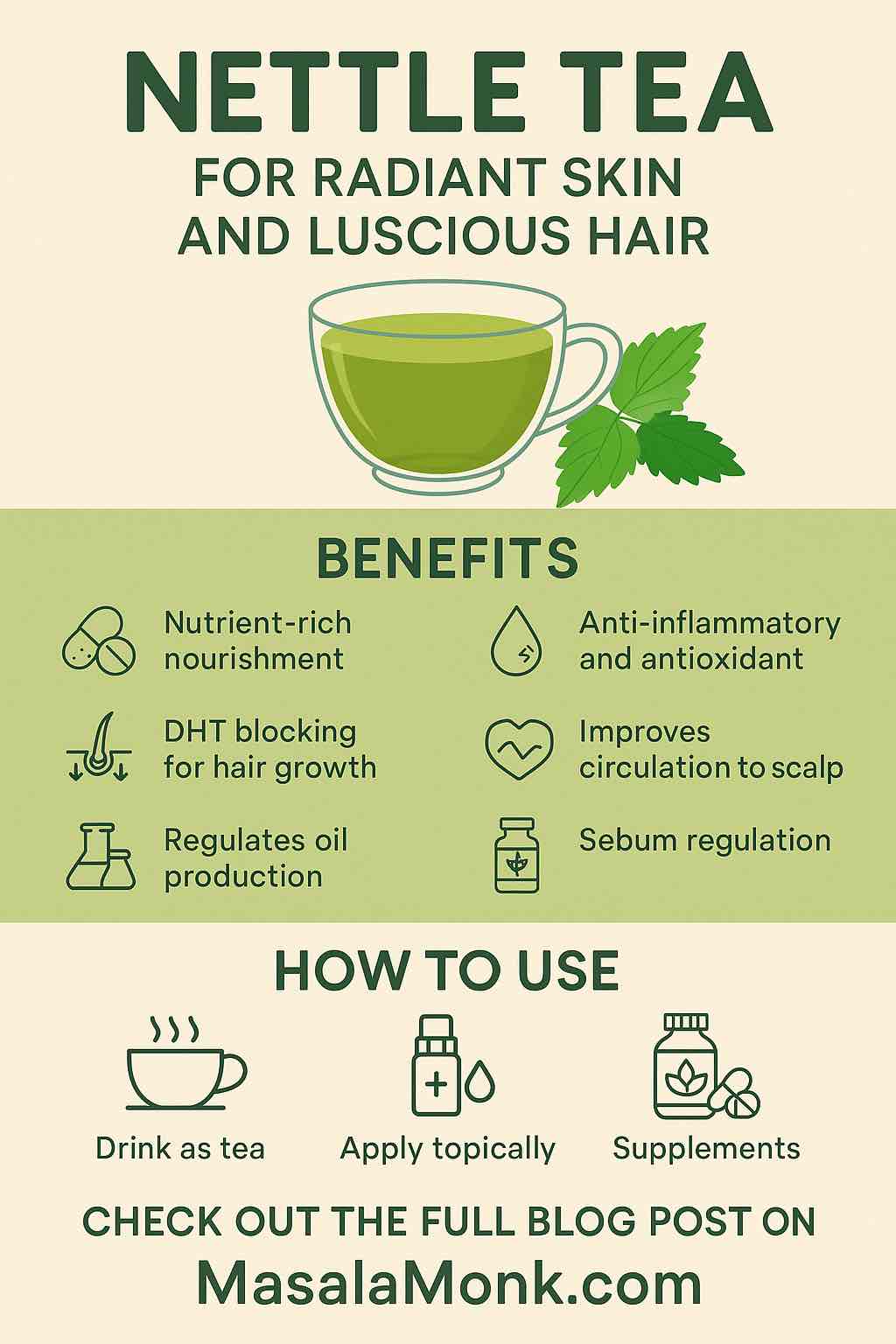
If you’re researching Mounjaro side effects, you’re not alone. Right from the first dose, most people want clear, compassionate guidance: what typically happens, how long it lasts, and—crucially—how to make side effects easier to live with. Because searches also show a lot of concern about Mounjaro body aches, Mounjaro muscle pain, Mounjaro joint pain, and leg cramps on Mounjaro, this guide goes beyond the gastrointestinal (GI) issues that dominated the trials and addresses what real people feel day to day. For orientation on frequency, timing, and red flags, the definitive summary remains the Mounjaro prescribing information (May 2025); meanwhile, large clinical programs such as the SURMOUNT-1 trial (NEJM) and the SURPASS-2 trial (NEJM) consistently show GI effects lead early and usually settle with time.
Plain-Language Reminder (Not Medical Advice): Bodies differ. If a symptom feels severe, persistent, or simply “not you,” talk with your clinician rather than trying to tough it out. Informational only—this article is educational, not medical advice. Decisions about starting, stopping, or adjusting medication should be made with your own clinician.
Common Mounjaro Side Effects (GI) — Why They Happen, When They Peak, and What Actually Helps
Why this happens. Tirzepatide slows gastric emptying and shifts gut-hormone signaling. Consequently, larger or fattier meals can “sit heavy,” nausea tends to cluster around initiation and step-ups, bowel habits may swing toward diarrhea or constipation, and reflux/burping can show up after late dinners. Fortunately, the gut adapts; with simple meal structure changes, hydration, and thoughtful dose pacing, most people feel steadily better. For frequencies and timing, see the Mounjaro prescribing information (May 2025) and the SURMOUNT-1 trial (NEJM).
Nausea On Mounjaro (Most Common GI Side Effect)
What’s going on. Slower stomach emptying + dose increases.
Today’s fixes.
- Smaller, earlier, lower-fat meals; slow the pace; skip “hero portions.”
- Sit upright 30–60 minutes after eating; sip fluids between meals.
- Gentle helpers: ginger tea/lozenges; cooler foods if aromas trigger queasiness.
Call sooner if: Fluids won’t stay down, dizziness appears, or nausea lingers beyond a few days at a stable dose.
Vomiting On Mounjaro (Less Common—Prevent Dehydration First)
Immediate goal: Hydration. Tiny, frequent sips; on rough days use oral rehydration. For simple ratios and options, see our post on electrolytes for diarrhea: best natural drinks & remedies.
Food texture: Bland, low-fat, easy to digest (broth, yogurt, rice, crackers).
Training: Pause high-intensity workouts until rehydrated.
Red flags: Repeated vomiting, very low urine, faintness, or dark urine → call promptly.
Diarrhea On Mounjaro (Triggers And Fixes)
Replace losses early: Fluids + electrolytes at the first sign.
Shift the plate: Add soluble fiber (ripe bananas, applesauce, oats, psyllium) once cramps ease.
Trim common triggers: Greasy foods, alcohol, very spicy dishes, and sugar alcohols (sorbitol/xylitol) often worsen things—reduce them for now.
Constipation On Mounjaro (Slow Transit After Step-Ups)
Build the base: Water, fiber (vegetables, berries, oats, chia), and movement.
Bathroom routine: A short walk after meals plus a daily, unhurried “appointment.”
If needed: Ask about a gentle osmotic option.
Before you start a fiber supplement, read this practical take on Metamucil’s day-to-day side effects.
Heartburn, Reflux, And Burping (Dyspepsia)
Structure meals: Smaller portions, earlier dinners, and avoid lying down within 3 hours of eating.
Usual culprits: High-fat meals, chocolate, mint, citrus, caffeine.
At night: Slight head-of-bed elevation; left-side sleep can help.
Abdominal Pain Or Bloating (Ordinary Vs Concerning)
Start simple: Slow your eating speed; favor lower-fat meals; walk 10–15 minutes after eating.
However: Severe, persistent, or radiating pain—especially with vomiting or fever—warrants prompt evaluation to rule out gallbladder or pancreas issues (details in the prescribing information).
Educational note—this is not medical advice. GI symptoms can quietly drain fluids and minerals. Consequently, dehydration often ripples outward as leg cramps on Mounjaro and generalized “achey” days. Because that matters to readers, let’s go there next.
Mounjaro Body Aches, Mounjaro Muscle Pain, And Leg Cramps On Mounjaro — Why They Happen And How To Ease Them
Short answer. In the trials, musculoskeletal pain was not among the most frequent adverse events; GI symptoms dominated. Even so, some people report myalgia, generalized aches, cramps, or transient arthralgia in real life—especially around dose escalations. Very rarely, case reports describe rhabdomyolysis (severe muscle breakdown) shortly after starting or stepping up tirzepatide. For the official overview, consult the Mounjaro prescribing information (May 2025); for a rare but notable signal, see a 2025 rhabdomyolysis case report.
Why Mounjaro Muscle Pain And Body Aches Show Up For Some People
- Dehydration And Electrolyte Shifts
Because nausea, vomiting, or diarrhea reduce fluid and minerals, dips in sodium or potassium can provoke cramps and soreness. Moreover, volume depletion strains the kidneys, which is one reason the label emphasizes hydration. - Rapid Weight Loss, Posture Changes, And New Routines
As weight drops, posture and gait adapt. Meanwhile, many people ramp up activity at the same time. Consequently, transient muscle soreness and joint “awareness” are common and usually settle with smart pacing. - Very Rare Muscle Injury (Know The Red Flags)
Severe pain, true weakness, or cola-colored urine after a dose change warrants same-day assessment to rule out rhabdomyolysis.
Leg Cramps On Mounjaro — Quick Wins That Work
- Rehydrate, then replace electrolytes on GI-symptom days (don’t wait). For simple at-home options, see DIY natural electrolyte drinks for dehydration.
- Ease into training for a week after each escalation; choose low-impact movement, light cycling, or walking.
- Stretch in the evening; add a brief morning warm-up.
- Call promptly if cramps are severe, frequent, or accompanied by dark urine or weakness.
Mounjaro Joint Pain — Typical Vs Not Typical
- Typical: Fleeting stiffness or “joint awareness” while body mechanics shift. Hydration + gentle, regular movement (walking, swimming, cycling) usually helps.
- Not typical: Hot, swollen joints, fever, or motion-limited pain—seek care rather than self-managing.
A One-Week Plan To Reduce Mounjaro Muscle Pain And Body Aches
- Day 1–2 (after a step-up): front-load fluids; schedule short walks after meals; keep meals smaller and lower-fat; hold off on strenuous training.
- Day 3–4: add a 10–15 minute mobility routine (hips, calves, thoracic spine); resume light cycling or brisk walking; maintain protein at each meal.
- Day 5–7: trial a short, low-volume resistance circuit (2–3 sessions this week); if aches spike again, extend your time at the current dose before escalating.
Informational only—please individualize with your clinician.
Hair Loss On Mounjaro — 2025 Label Update, Why Shedding Happens, And What Genuinely Helps
Some people notice hair loss on Mounjaro, yet most shedding resembles telogen effluvium—a temporary, nonscarring shed triggered by rapid weight loss or nutrition gaps. In May 2025, “alopecia” was added to the label’s postmarketing section (reported after use; not proven common in trials). See the Mounjaro prescribing information (May 2025). For a straightforward primer on TE, a helpful overview is this dermatology review of telogen effluvium.
Why Telogen Effluvium Follows Rapid Weight Change
During calorie or protein deficits, the body prioritizes essentials over hair production. Consequently, more follicles enter the resting (telogen) phase, and diffuse shedding appears 2–3 months later. Reassuringly, TE is reversible once intake and weight stabilize, although it does take weeks to show improvement and months to reveal obvious regrowth.
Where Mounjaro Fits
Tirzepatide can suppress appetite and accelerate weight loss; meanwhile, early GI side effects may further dent intake. Put simply, short stretches of low protein and low micronutrients are enough to push susceptible follicles into telogen.
What Actually Helps (Practical, Doable Steps)
- Stabilize Intake Before Dose Jumps. If appetite is poor or GI symptoms flare, pause escalation or extend your time at the current dose until eating normalizes.
- Keep Protein Steady. A pragmatic starting range during active weight loss is ~1.2–1.6 g/kg/day (individualized with your clinician), spread across meals to protect lean mass and hair. (See our post on how to eat 100 grams of protein a day if you need a plan).
- Check The Usual Nutrients. Ask about ferritin/iron, zinc, and vitamin D if shedding is significant or prolonged; correct deficits with guidance.
- Avoid Extreme Deficits. On low-appetite days, rely on easy, higher-protein, lower-fat options (Greek yogurt, eggs, tofu, cottage cheese, smoothies). Meanwhile, stay ahead of dehydration.
- Give It Time. Expect 6–12 weeks for shedding to calm and several months for visible regrowth. Reduce heat styling and tight hairstyles while new growth returns.
Educational note—this is not medical advice. Patchy loss, scalp inflammation, or prolonged heavy shedding deserves a medical work-up.
Mounjaro Vision Changes — Blurry Vision, Diabetic Retinopathy, And Keeping An Eye On Emerging Data
Most people will not develop vision problems on tirzepatide. However, if you already have diabetic retinopathy, rapid glucose improvement can temporarily worsen retinopathy or cause transient blur; therefore, extra monitoring is sensible. This precaution is described in the Mounjaro prescribing information (May 2025). Separately, an observational cohort in 2025 reported a class-level association between GLP-1 medicines and neovascular age-related macular degeneration (nAMD); although absolute risk was small and causality is unproven, it’s a timely reminder to keep routine eye checks (see the JAMA Ophthalmology 2025 cohort).
Why Vision Can Shift When Glucose Improves Rapidly
As sugars normalize, the lens and retina adjust; transient blur or short-term retinopathy changes can appear, then stabilize. Notably, this is not unique to tirzepatide; it can occur with any rapid glycemic improvement.
Practical Steps That Protect Your Eyes
- Book An Eye Exam if you have a history of retinopathy or if new blur appears; bring recent glucose logs so your eye doctor can see your rate of change.
- Aim For Steadier Glucose via regular meals, dose pacing, sleep, and gentle movement—fewer spikes and dips often mean fewer visual swings.
- Do Not Stop Abruptly on your own; call your clinician if vision symptoms appear.
Vision Red Flags—Call Urgently
- Sudden vision loss or a dark “curtain.”
- Flashes or a shower of new floaters.
- Eye pain, severe headache, or nausea with visual changes.
Information only—urgent changes deserve urgent care.
Mounjaro Dosing And Timeline — When Side Effects Tend To Show Up And How To Smooth The Ride
Most Mounjaro side effects cluster at initiation and each dose increase. Because the body adapts, your biggest lever is dose pacing plus a few supportive habits. For official dosing language, see the Mounjaro prescribing information (May 2025). For peri-procedural considerations (aspiration risk with anesthesia/deep sedation), a concise summary is available from The Medical Letter peri-procedural guidance (2024).
Standard Step-Ups (And Why Slower Often Feels Better)
Many people follow 4-week steps: 2.5 → 5 → 7.5 → 10 → 12.5 → 15 mg. However, if you reliably hit a rough patch at each increase, you can ask to stay longer at a tolerable dose or stretch a step to 6–8 weeks. Consequently, the “shock” to gastric emptying and appetite signals is smaller, and rescue meds are often unnecessary.
What To Expect By Week (Common, Not Universal)
- Week 1–2 At A New Dose: Nausea peaks; stools may swing; appetite dips most here.
- Week 3–4: Symptoms usually fade; energy stabilizes; workouts resume.
- Within 48–72 Hours Of An Injection: Many people feel a mini-wave of queasiness/fullness on “shot day” and the next day; earlier dinners and smaller portions help.
“Shot-Day” Playbook (Copy And Use)
- Night Before: Earlier, lighter dinner.
- Dose Day: Smaller, more frequent meals; avoid very high-fat feasts; keep fluids handy.
- Walk After Meals: 10–15 minutes reduces fullness and burping.
- If Appetite Tanks: Rely on easy proteins (yogurt, eggs, tofu, cottage cheese, smoothies).
- Training: Delay high-intensity sessions 48–72 hours if you’re routinely queasy after injections.
Travel, Big Events, And Procedures
- Travel Week: Hold at your current dose rather than escalating right before a flight.
- Big Events: Coordinate injection timing (with your prescriber) so the queasiest window doesn’t land on your most important day.
- Anesthesia & Endoscopy: GLP-1s delay gastric emptying; instead of stopping on your own, coordinate with your surgical/anesthesia team for individualized instructions (see The Medical Letter peri-procedural guidance (2024)).
Educational disclaimer: These are general strategies, not individualized medical advice.
Serious Side Effects Of Mounjaro — Clear Warning Signs, In Plain English
Most people never experience these, yet it’s important to know what to watch for. Full details live in the Mounjaro prescribing information (May 2025).
Pancreas And Gallbladder — When Stomach Pain Isn’t “Just GI”
- Acute Pancreatitis: Sudden, severe upper-abdominal pain (often radiating to the back) with nausea/vomiting → same-day assessment.
- Gallbladder Disease: Right-upper-quadrant pain (sometimes after meals) ± fever or jaundice → prompt evaluation.
Kidneys — Dehydration Can Snowball
Repeated vomiting/diarrhea plus dizziness or very low urine can tip you toward acute kidney injury. If fluids aren’t staying down, you may need IV hydration and labs—don’t wait for things to get worse.
Vision — Who Needs Closer Monitoring
If you have diabetic retinopathy, rapid glucose improvement can temporarily worsen retinopathy or cause blur—book an eye exam (see prescribing info). Meanwhile, the JAMA Ophthalmology 2025 cohort suggested a small class-level nAMD association; keep routine checks regardless.
Hypersensitivity — Don’t Second-Guess This
Swelling of lips/face/tongue, hives, trouble breathing, or wheezing after an injection = urgent care.
Stomach And Anesthesia — Aspiration Risk Is Manageable With Planning
GLP-1s slow gastric emptying. For procedures with anesthesia or deep sedation, approaches are individualized—based on your symptoms and the procedure type—rather than a blanket stop. Coordinate with your care team (see The Medical Letter peri-procedural guidance (2024)).
Muscle — Rare But Serious
Rhabdomyolysis is rare but serious. Severe muscle pain, true weakness, or cola-colored urine after starting or increasing dose needs same-day evaluation (see the 2025 case report in the references list).
Thyroid Boxed Warning — Who Should Avoid
Tirzepatide carries a boxed warning for thyroid C-cell tumors seen in rodents. People with a personal/family history of medullary thyroid carcinoma or MEN2 should not use it. If you have thyroid nodules or concerns, talk to your clinician.
Informational only—follow your clinician’s advice for your situation.
Quick “Should I Call?” Filter For Mounjaro Side Effects
Call the same day if you have:
- Severe abdominal pain (especially with vomiting).
- Persistent vomiting/diarrhea plus dizziness or very low urine.
- Sudden vision changes (especially if you’ve had retinopathy).
- Allergic-type symptoms (swelling, breathing trouble, hives).
- Severe muscle pain/weakness or dark urine.
When in doubt, it’s okay (and wise) to call.
Everyday Habits That Reduce Mounjaro Side Effects (A Practical Toolkit)
Hydration & Electrolytes. Set a daily fluid target; on rough GI days, use an oral rehydration solution. Consequently, you’ll often see fewer leg cramps on Mounjaro, less “whole-body ache,” and steadier energy.
Protein At Every Meal. Even distribution—breakfast, lunch, dinner—supports recovery, preserves lean mass, and reduces “all-over” soreness during weight loss.
Movement Hygiene. Brief post-meal walks, 2–3 short resistance sessions weekly, and daily mobility for tight spots (neck, hips, calves) go a long way. Build gradually; don’t leap.
Dose Pacing. If symptoms surge at every increase, extend the step. Many people feel dramatically better with an extra week or two at a tolerable dose.
Educational reminder—this is not personalized medical advice.
References
- Mounjaro prescribing information (May 2025) — common side effects, warnings/precautions, dosing, postmarketing
- SURMOUNT-1 trial (NEJM) — obesity/weight-management efficacy & safety (GI predominates)
- SURPASS-2 trial (NEJM) — diabetes head-to-head; adverse-event profile context
- JAMA Ophthalmology 2025 cohort — GLP-1 exposure and neovascular AMD (observational; absolute risk small)
- The Medical Letter peri-procedural guidance (2024) — anesthesia/aspiration risk considerations for GLP-1s
- Dermatology review of telogen effluvium — nonscarring, reversible shedding with weight loss or stress
- 2025 rhabdomyolysis case report — rare, serious muscle injury signal after dose initiation/escalation
Final Disclaimers
- This article is informational and educational. It does not replace personalized medical advice, diagnosis, or treatment.
- Dose pacing, nutrition, and symptom management should be coordinated with your clinician.
- If you believe you’re experiencing a medical emergency, call your local emergency number immediately.
FAQs on Side Effects of Mounjaro
Informational only—these FAQs are educational, not medical advice. If a symptom is severe, persistent, or feels “not you,” please speak with your clinician.
1) Do Mounjaro Side Effects Happen Right Away Or Later?
Most Mounjaro side effects appear during the first few weeks and again after each dose increase. However, they often ease as your body adapts. If a new symptom appears suddenly or feels severe, check in with your clinician.
2) Are Mounjaro Body Aches Normal?
Mounjaro body aches can happen, especially during dose escalations. They’re often related to dehydration, electrolyte shifts, or routine changes. Consequently, steady fluids, light movement, and dose pacing usually help.
3) Can Mounjaro Cause Muscle Pain Or Muscle Aches?
Yes, Mounjaro muscle pain can occur for some people. It’s commonly mild and linked to volume depletion or new exercise. However, severe pain, true weakness, or dark “cola” urine needs same-day medical review.
4) What About Mounjaro Joint Pain—Is That Expected?
Some experience Mounjaro joint pain or “joint awareness,” especially as weight, posture, and activity change. Gentle mobility, hydration, and gradual training can reduce it. Hot, swollen joints or fever require evaluation.
5) Why Do I Get Leg Cramps On Mounjaro?
Leg cramps on Mounjaro often trace back to low fluids or electrolytes, particularly after nausea, vomiting, or diarrhea. Therefore, rehydrate early, replace electrolytes, and stretch in the evening.
6) I Have Neck Pain On Mounjaro—Should I Worry?
Mounjaro neck pain is usually muscle tension or posture-related as activity patterns shift. Still, if pain is severe, radiates, or includes numbness/tingling or weakness, seek medical advice.
7) Does Mounjaro Cause Hip Pain Or Knee Pain?
Some report Mounjaro hip pain or Mounjaro knee pain, typically from changes in gait during weight loss or from ramping workouts too fast. Gradual progressions, supportive footwear, and low-impact cardio help.
8) Can Mounjaro Cause Body Aches After The First Dose?
Yes—first-dose days and step-up weeks are the most likely times. Fortunately, aches often fade within days as hydration and meal structure improve.
9) Is Muscle Weakness A Side Effect Of Mounjaro?
Minor fatigue can appear during appetite suppression. However, true weakness—especially with severe muscle pain or dark urine—needs urgent care to rule out serious issues.
10) What Are The Most Common Mounjaro GI Side Effects?
Nausea, diarrhea, decreased appetite, constipation, and heartburn/burping are the headliners. They tend to cluster early and settle with smaller, earlier, lower-fat meals plus dose pacing.
11) Does Mounjaro Cause Diarrhea Or Constipation—And What Helps?
Both can happen. For diarrhea, replace fluids/electrolytes early and trim triggers like greasy meals or sugar alcohols. For constipation, build fluids, fiber, and movement; then consider a gentle osmotic if needed.
12) Why Am I Burping So Much On Mounjaro?
Slower gastric emptying and large/high-fat meals can increase burping and belching. Therefore, eat smaller portions, dine earlier, and stay upright after meals. Left-side sleeping can also help.
13) Does Mounjaro Cause Heartburn Or Indigestion?
It can. Structure meals (smaller, earlier), reduce trigger foods (very fatty meals, mint, citrus, caffeine), and elevate the head of the bed. Persistent or severe reflux deserves a check-in.
14) Can Mounjaro Cause Headaches?
Headaches may appear when hydration, caffeine, or sleep patterns change. Steady fluids, regular meals, and consistent bedtime often help. However, sudden or severe headaches need medical advice.
15) Why Do I Feel Tired On Mounjaro?
Mounjaro tiredness can stem from lower calorie intake, dehydration, or sleep disruption. Consequently, aim for balanced meals with protein, sip fluids regularly, and respect recovery on dose-change weeks.
16) Is Hair Loss On Mounjaro A Real Thing?
Yes—some people notice hair loss on Mounjaro, commonly a temporary shedding pattern called telogen effluvium. It often follows rapid weight loss or nutrition gaps and improves as intake stabilizes.
17) Can Mounjaro Affect Vision Or Cause Blurry Vision?
Mounjaro vision changes are uncommon. Yet, if you have diabetic retinopathy or your sugars are improving rapidly, transient blur can occur. Therefore, schedule an eye exam if vision changes appear.
18) Do Mounjaro Side Effects Differ By Dose (2.5 mg vs 5 mg vs 10 mg, etc.)?
Side effects often flare at each dose increase. Many people do better by staying longer at a comfortable dose before stepping up. In other words, slower titration can mean smoother weeks.
19) Are There Serious Side Effects Of Mounjaro I Should Know?
Yes, but they’re uncommon. Red flags include severe abdominal pain (with vomiting), signs of dehydration with very low urine, allergic reactions (swelling, hives, breathing trouble), sudden vision changes, or severe muscle pain/weakness with dark urine.
20) Does Mounjaro Cause Body Aches After Each Weekly Shot?
Some feel a mini-wave of queasiness or body aches within 48–72 hours of the injection. Consequently, earlier lighter dinners, steady fluids, and gentle movement can make “shot days” easier.
21) How Long Do Mounjaro Side Effects Last?
Many symptoms settle within 1–3 weeks at a given dose. If a side effect doesn’t ease—or it worsens—despite basic strategies, it’s time to check in with your clinician.
22) Can I Prevent Mounjaro Side Effects Before They Start?
You can reduce risk: escalate doses slowly, keep meals smaller and earlier, hydrate daily, and plan light exercise plus sleep consistency during step-up weeks.
23) Are Mounjaro Side Effects Different For Weight Loss vs Diabetes?
The pattern is similar—GI effects lead—yet timing and intensity can differ by individual factors (diet, speed of glucose improvement, titration, baseline health). Personalization matters.
24) Does Mounjaro Cause Long-Term Side Effects?
Most side effects are short-term and dose-related. However, any persistent or worrisome symptom—especially visual changes, gallbladder-type pain, or severe muscle issues—warrants medical review.
25) Can Mounjaro Cause Aches And Pains Weeks After Starting?
Yes, especially around dose changes or big routine shifts. Meanwhile, hydration, electrolytes, protein at meals, and gentler training usually turn the corner within days.
26) What Should I Do If I Have Severe Nausea Or Vomiting On Mounjaro?
Prioritize fluids and call sooner rather than later. Tiny sips of oral rehydration, bland foods, and a quieter activity plan help—but inability to keep fluids down is a reason to seek care.
27) What If I Have Persistent Diarrhea On Mounjaro?
Rehydrate early, step back from greasy/spicy foods and sugar alcohols, and add soluble fiber after cramps ease. If diarrhea persists, especially with dizziness or very low urine, call your clinician.
28) Are Injection-Site Reactions Common?
Mild redness or itch can appear; rotating sites and letting alcohol dry before injecting usually helps. However, spreading rash, warmth, or swelling deserves a check.
29) Does Mounjaro Raise Or Lower Blood Pressure?
Weight loss and improved insulin sensitivity can lower blood pressure in some people over time. Nevertheless, watch for dehydration on rough GI days, which can make you feel light-headed.
30) When Should I Call A Clinician About Mounjaro Side Effects?
Call the same day for: severe abdominal pain, persistent vomiting/diarrhea with dizziness or low urine, sudden vision changes, allergic-type symptoms, or severe muscle pain/weakness with dark urine.
Friendly reminder: everyone’s response is unique. Therefore, if something feels off, you don’t need to wait—reach out to your clinician for personalized guidance.













